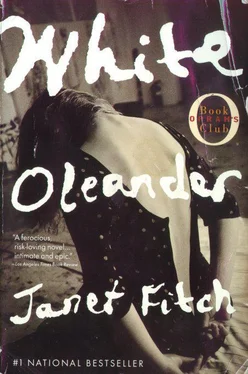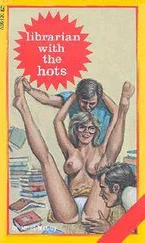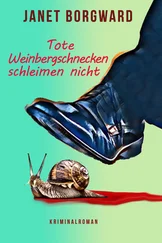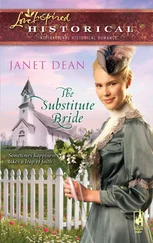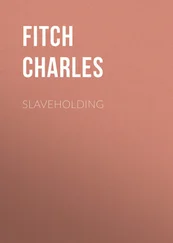Janet Fitch - White Oleander
Здесь есть возможность читать онлайн «Janet Fitch - White Oleander» весь текст электронной книги совершенно бесплатно (целиком полную версию без сокращений). В некоторых случаях можно слушать аудио, скачать через торрент в формате fb2 и присутствует краткое содержание. Жанр: Современная проза, на английском языке. Описание произведения, (предисловие) а так же отзывы посетителей доступны на портале библиотеки ЛибКат.
- Название:White Oleander
- Автор:
- Жанр:
- Год:неизвестен
- ISBN:нет данных
- Рейтинг книги:3 / 5. Голосов: 1
-
Избранное:Добавить в избранное
- Отзывы:
-
Ваша оценка:
- 60
- 1
- 2
- 3
- 4
- 5
White Oleander: краткое содержание, описание и аннотация
Предлагаем к чтению аннотацию, описание, краткое содержание или предисловие (зависит от того, что написал сам автор книги «White Oleander»). Если вы не нашли необходимую информацию о книге — напишите в комментариях, мы постараемся отыскать её.
White Oleander — читать онлайн бесплатно полную книгу (весь текст) целиком
Ниже представлен текст книги, разбитый по страницам. Система сохранения места последней прочитанной страницы, позволяет с удобством читать онлайн бесплатно книгу «White Oleander», без необходимости каждый раз заново искать на чём Вы остановились. Поставьте закладку, и сможете в любой момент перейти на страницу, на которой закончили чтение.
Интервал:
Закладка:
“No. I went to the racetrack once.” Medea’s Pride at five-to-one. His hand on her waist. “You?”
“I been on the pony ride at Griffith Park,” Yvonne said.
“Over there,” Rena pointed.
A gray texturecoat house had black plastic bags plumped next to the trash. Rena stopped and Niki jumped out, cut the tab of one with a pocketknife. “Clothes.” She and Yvonne handed the bags up to me in the back. They were heavier than I’d thought, must have had appliances in the bottom. Yvonne lifted them easily, she was strong as a man. Niki swung the bags, a practiced move.
“I’m so tired,” Yvonne said, as we started off again. “I hate my life.” She filled the coffee cup, gulped it down, filled it again and handed it to me. It was instant, hot and too strong.
Behind the wheel, Rena dragged on her cigarette, she held it like a pencil. “I told you get rid. What you need baby? Cow.”
Rena Grushenka. Rock music and American slang both twenty years out of date, discount Stoli from Bargain Circus. She trained her black magpie eyes on the curb with its neatly arrayed trash cans and recycling bins. She could see in the dark with those eyes. This morning she wore a necklace of silver milagros, arms, hands, and legs. You were supposed to pin them to the velvet skirts of the Virgin to pray, but to Rena they were just pawned body parts.
“Hey, turnip people,” she called out the window as we squeezed past an old Cadillac double-parked, a Mexican couple emptying somebody’s recycling. Bagged cans and bottles crammed their trunk and backseat. “Dobro utro, kulaks.” She laughed with her mouth wide open, her gold inlays glinting.
They stared at us without expression as we clattered by.
Rena sang along with Mick in her thick accent, tapping on the blue steering wheel with the inside of her ring, craning her neck in and out like a chicken. She had a deep voice, a good ear.
Niki yawned and stretched in the other captain’s chair. “I need a ride back to work sometime to pick up my truck. Werner took me to his place last night.” She grinned her lop-toothed smile.
Rena sipped from her Winchell’s cup. “The knackwurst.”
“Four times,” Niki said. “I can hardly walk.” Werner, supposedly a German rock promoter, came to the Bavarian Gardens, where Niki worked three nights a week, though she wasn’t twenty-one. She had a fake ID from one of Rena’s friends.
“You should bring knackwurst. I got to meet.”
“Fat chance of that,” Niki said. “He gets one look at you bitches, he’ll be on the first plane back to Frankfurt.”
“You’re just afraid he’ll see you’re a man,” Yvonne said.
Their talk went on like this, ceaseless as waves. I leaned on my forearms against the oxidized blue console between the front seats. Before me lay a collage of debris, like a forest floor: empty black Sobranie packages, fliers in Spanish, a little brush full of black hair, a key ring with a blue rubber coin purse, the kind you squeeze on the sides and the mouth opens up. I played with it, making it sing along to the tape.
The sunrise was a pale rubbing along the eastern horizon, gray-white clouds like scumbled pastels, a sponge-painted sky. Gradually, the manmade features of the landscape receded—the train yards, freeway, houses, and roads—until all that remained was blue hills backlit by dawn light, red over the ridge-line. It was a set for a western movie. I could almost see the arms of giant saguaro, the scurry of coyote and kit fox. The Great Basin, Valley of Smoke. I held my breath. I wished it could always be like this, no people, no city, just rising sun and blue hills.
But the sun cleared the ridge, returning the 2 and the 5, early traffic moving downtown, truck drivers heading to Bakersfield, thinking about pancakes, and us in the van on garbage day.
We continued to sift the city’s flotsam, rescuing a wine rack and a couple of broken cane-bottom chairs. We took on an aluminum walker, a box of musty books, and a full recycling bin of Rolling Rock empties that sharpened the mold smell in the back. I pocketed a book about Buddhism, and one called My Antonia.
I liked these winding streets and hillside spills of bougainvillea, the long flights of stairs. We drove by the house where Anaïs Nin lived, and I had no one to point it out to. My mother used to like to drive by the places famous writers lived in L.A.—Henry Miller, Thomas Mann, Isherwood, Huxley. I remembered this particular view of the lake, the Chinese mailbox. We had all her books. I liked their titles— Ladders to Fire , House of Incest —and her face on the covers, the false eyelashes, her storybook hair coiled and twisted. There was a picture of her with her head in a birdcage. But who was left to care?
We stopped for doughnuts, startling a convention of parking lot pigeons that rose in a great flickering wheel of dark and light grays, taking the stale morning sun on their wings, the freshness already bled from the air. Yvonne stayed in the van, reading her magazine. The girl at the counter at Winchell’s rubbed sleep from her eyes as Rena, Niki, and I came into the shop. Rena bent over the glass case in her cherry-red pants, giving an on-purpose bust-and-rump show for the homeless men and mental patients from the nearby board and care, cruelly flaunting what they couldn’t have, and I couldn’t help thinking of Claire when the bum smelled her hair. We ordered our doughnuts, jelly-filled, custard, glazed. Rena had the girl refill her coffee cup.
Outside, a man squatted by the door, in his arms a tray of ladybugs in plastic bubbles.
“Ladybug,” he half sang. “Laaaady-bug.”
He was a small man, wiry, of indeterminate age, his face weathered, his black beard and long ponytail shot with gray. Unlike most street people, he didn’t seem drunk or insane.
Rena and Niki ignored him, but I stopped to look at the red specks crawling in the bubble. What was the harm in being polite. Anyway, I’d never seen anyone selling ladybugs as a profession.
“Eats the aphids in your garden,” he said.
“We don’t have a garden,” I said.
He smiled. His teeth were gray but not rotten. “Take one anyway. They’re lucky.”
I gave him a dollar and he handed me the ladybugs in their plastic bubble, the kind rings and trolls came in in the twenty-five-cent gumball machines.
In the van we lingered over our fried dough and caffeine. Flakes of sugar fell on our clothes. The worst thing about Ripple Street was the food. We ate takeout every night. At Rena’s, nobody cooked. She didn’t even own a recipe book. Her battered recycle bin pans were coated with dust. Four women in one house and nobody knew how to do anything, no one wanted to. We just called Tiny Thai. For people who would stop for empty beer bottles, we pissed all our money away.
As we drove to the other side of the lake, I turned my plastic bubble over, slowly, watching the ladybugs run to stay upright. They were healthier than you’d think. Caught this morning. I imagined the ladybug man’s patient blue eyes searching the dewy fennel for the red dots.
Throw it back, Claire had said. It’s so alive.
But they were lucky, that’s what the ladybug man said.
From between the captain’s seats, I could see Silver Lake in its nest of hills reflecting the cloudless sky. It reminded me of a place in Switzerland I went once with my mother. A mountain dropping right down into the lake, the town on the slope. There were camellias and palm trees and tall narrow shutters, and it had started to snow as we ate lunch. Snow on the pink camellias.
Now we were on the good side of the lake. We gazed longingly at the big houses, Spanish, Cape Cod, New Orleans, in a morning scented bready-sweet from the big carob trees. Imagining what it would be to be so real. “That one’s mine,” Yvonne said, pointing to the half-Tudor with the brick driveway. Niki liked a modern one, all glass, you could see the fifties-style lamps against the ceiling, a Calder mobile. “I don’t want any junk in my house,” she said. “I want it stripped. Chrome and black leather.”
Читать дальшеИнтервал:
Закладка:
Похожие книги на «White Oleander»
Представляем Вашему вниманию похожие книги на «White Oleander» списком для выбора. Мы отобрали схожую по названию и смыслу литературу в надежде предоставить читателям больше вариантов отыскать новые, интересные, ещё непрочитанные произведения.
Обсуждение, отзывы о книге «White Oleander» и просто собственные мнения читателей. Оставьте ваши комментарии, напишите, что Вы думаете о произведении, его смысле или главных героях. Укажите что конкретно понравилось, а что нет, и почему Вы так считаете.
